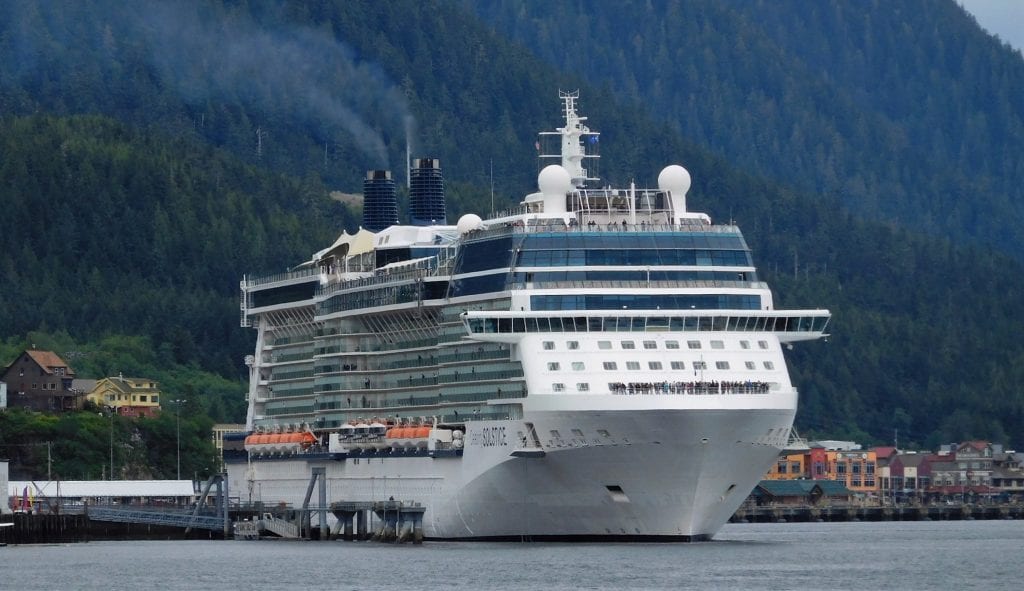
Passengers stand on the deck of the Celebrity Solstice in Tongass Narrows on June 5, 2016. Ketchikan city officials worry changes in passenger fees could reduce funding for docks and related infrastructure improvements. (Ed Schoenfeld/CoastAlaska News)
The Ketchikan City Council got its first look at next year’s municipal budget Monday night.
During a special meeting, City Manager Karl Amylon said the spending plan for calendar year 2018 pretty much maintains the status quo.
“We are offering our current level of services, maintaining the workforce and not doing a whole lot different in terms of how we carry on business,” he said.
He said the spending plan follows council instructions to continue current sales and property tax rates.
The sales tax will remain at 4 percent. But the amount collected is projected to go up 1 percent, as more cruise-ship tourists come to town and shop.
The property tax rate will stay at 6.7 mills. That’s $6.70 charged per thousand dollars of taxable property. But assessments are set to increase 1 percent, boosting that revenue stream.
Amylon told the council the budget does call for a 6 percent increase in wastewater rates. But it won’t cover what’s needed.
“Essentially, the spending plan that’s before you has capital spending significantly reduced. We do not have the financial resources currently to fund both operations and infrastructure that’s in need of replacement,” he said.
Amylon said the 2018 city budget does not include enough money to respond to a major sewer system breakdown. He said the projected amount of reserve funds might only be enough to replace two blocks of lines. The council did not raise rates in the current year’s budget.
Council members raised concerns about potential loss of state funding, which would force the city to cut back services or raise more revenues.
Amylon said that includes state contributions to public employee retirement funds — and more.
“I fully expect that the next Legislative session will probably bring about the elimination of state revenue sharing. I think CPV revenues will probably be again be at risk,” he said.
CPV is the commercial passenger vessel funds, charged to cruise ship tourists. Some Railbelt legislators have tried to take that money away from port communities for use elsewhere. And an industry lawsuit against Juneau questions the role municipalities play in determining how that revenue is spent.
Members of the public will have a chance to voice their opinions at a future meeting. The council will need to take action on the budget by Dec. 29.





